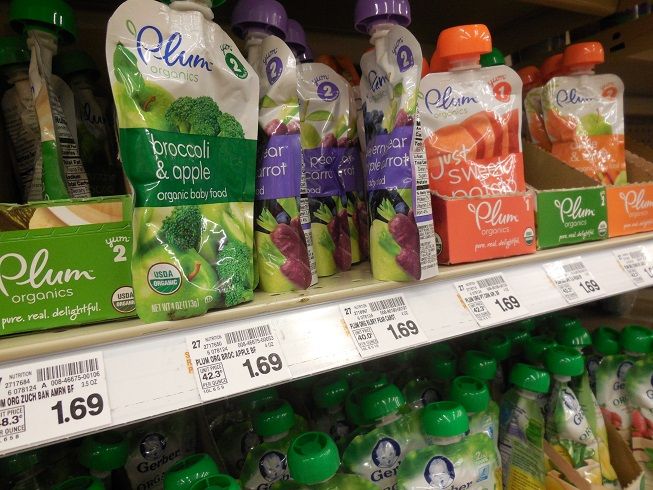Most parents probably know the feeling. Screaming kids in the back seat of the car and you throw them a tasty snack in a little pouch just to get a few minutes’ respite.
There’s little doubt that the pouches are handy at a pinch, a quick-food option for those in need. But parents shouldn’t let this develop into a daily habit.
Danish experts contend that solely using the pouches won’t teach children to eat varied foods and they won’t fully develop their taste and smell preferences. Most pouch meals don’t contain adequate nutrients either.
“Just three years ago, there weren’t many of these kinds of products around – now they’ve exploded. You can get lasagna and moussaka in pouches, but the trouble is that we don’t teach our kids that foods smell, taste and feel differently,” Kirsten Mikkelsen Ravnbøl, a child nutrition expert, told TV2 News.
“We risk getting super-picky kids who refuses to eat nutritious, homemade food with healthy raw materials because they’ve got used to everything they eat tasting of purée.”
READ MORE: More parties eyeing ban on energy drinks for children
Taste and consistency
Ravnbøl argues that at best, food in pouches should be regarded as a supplement for use now and then, as most contain too few food products and too few kilojoules than is recommended.
Several studies show that we bring our food experiences as children with us into adulthood, so learning the taste and consistency of vegetables early on increases the chance of children learning to like eating them later in life. The health authority, Sundhedsstyrelsen, agrees with the criticism.
”The consistency and taste of these products is far too alike. Children don’t learn to eat a varied diet if they are not presented with different taste impressions,” Annette Poulsen, a health expert with Sundhedsstyrelsen, told TV2 News.
“Infants should learn that bananas are soft and rye bread is hard, that food varies in consistency and taste. If parents don’t face that challenge, we’ll see kids that don’t develop a healthy relationship to standard home-cooked food.”
Supermarket giant Salling Group, which operates the chains Netto, Føtex and Bilka, confirmed to TV2 that they have registered increased sales of baby food in pouches.















